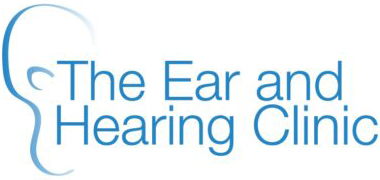Dizziness and Balance Problems
Balance Clinic
At the Ear and Hearing Clinic we take a multidisciplinary approach to caring for patients. Patients are assessed by our otologist and audiological science team at our balance clinic and individuals are prescribed a bespoke treatment plan depending upon their diagnosis and symptoms. Please call or email to arrange an appointment and read on to find out more about potential causes of dizziness and treatment of symptoms.
Dizziness
Dizziness is a loss of sense of balance and might be characterized by a sense of unsteadiness; a feeling of movement within the head such as giddiness or a swimming sensation; lightheadedness; or a whirling sensation. Dizziness changes the sense of balance and can increase risk of falls.
There are three main types of dizziness:
- Faintness – the feeling of a lack of strength with a sensation of impending loss of consciousness. An impairment of circulation is a common cause; blood loss or dehydration, as well as heart problems, can impair circulation. However, low blood sugar, low oxygen levels in the blood, acute infections, and drug reactions can also cause lightheadedness.
- Vertigo – a sensation of spinning or whirling, or a hallucination that the room is spinning.
- Disequilibrium – a feeling of falling to one side or the other. It causes a loss of balance.
What can cause dizziness?
Dizziness can be caused by a problem associated with the inner ear, brain, or heart/circulation.
The mechanisms for maintaining balance are complex, involving the co-ordination of stimuli from the inner ears; vision; skin and touch sensation; a sensation of joint position etc. Impairment of any of these processes, and the brain’s ability to process and co-ordinate that information will contribute to dizziness. There is also the possible contribution of the circulatory system, in terms of causing faintness. In a significant proportion of patients, especially elderly, the cause is often multi-factorial.
Some ear-related causes of vertigo and disequilibrium:
Meniere’s Disease
Meniere’s Disease is associated with the fluid balance-regulating system in the ear. Symptoms include episodic attacks of tinnitus (ringing in the ear), ear fullness, hearing loss, and severe attacks of vertigo accompanied by nausea and vomiting. This condition can be treated with changes in diet and medications. Surgery is occasionally required.
Benign Paroxysmal Positional Vertigo (BPPV)
BPPV is a disorder in which changing your head position leads to sudden vertigo—a feeling that the room is spinning around. The vertigo can be severe but usually lasts for less than one minute. Sometimes there is a longer lasting lightheadedness. The characteristic position that induces BPPV is in bed, lying down with the head turned to one side (with the effected ear down most). BPPV is caused by dislodged calcium particles in the inner ear. It is easily treated by an outpatient procedure called Epley’s manoevre, which re-positions the calcium particles by putting the patient in a sequence of positions.
Vestibular neuritis (labyrinthitis)
This condition is caused by the inflammation of the nerve cells in the balance portion of the inner ear. The main symptom is sudden onset of sustained vertigo, lasting for a few days and gradual improvement over days and weeks. Treatments include medications to relieve symptoms of dizziness and nausea as well as balance rehabilitation.
Atypical migraine
Atypical migraine can affect the ear and cause vertigo or dysequilbrium. It can sometimes masquerade as labyrinthitis or Meniere’s disease.
Dizziness due to ageing
Common symptoms of dizziness associated with aging include lightheadedness, a spinning sensation, giddiness, wooziness, or unsteadiness. Forty percent of patients over age 60 have experienced dizziness severe enough to affect their daily activities. Age-related dizziness can be minimized by making lifestyle changes such as:
- Sitting on edge of the bed for several minutes before standing
- Turning or changing positions slowly
- Never walking in the dark and using a night light or turning on a light before entering a room
- Keeping medical conditions under control
- Using a cane or walker for more severe problems
How can these conditions be treated?
In general, finding the cause of dizziness is very helpful in deciding how to treat it. Symptoms of faintness/lightheadedness can be resolved by treating the underlying cause of dizziness. For example, if vomiting and diarrhoea are causing a person to become dehydrated, then rehydrating the person will alleviate the dizziness. Likewise, treating the underlying heart condition or anaemia will fix the problem for those conditions.
Otologist Mr Simon Lloyd has a special interest in dizziness and balance problems.
Please call: 01625 537486 or email: enquiries@earandhearing.co.uk if you would like to arrange a consultation.
